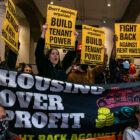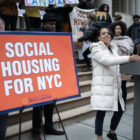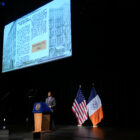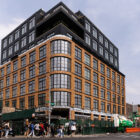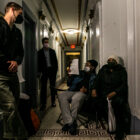Housing and Homelessness
Opinion: To Solve NY’s Affordability Crisis, Expand & Protect Rent Stabilization
Georgina Christ |
“It is crucial that Gov. Hochul sign all three bills as soon as possible. The longer the governor delays, the more units will be taken out of New York’s rent stabilization system—and the less affordable New York will become.”


